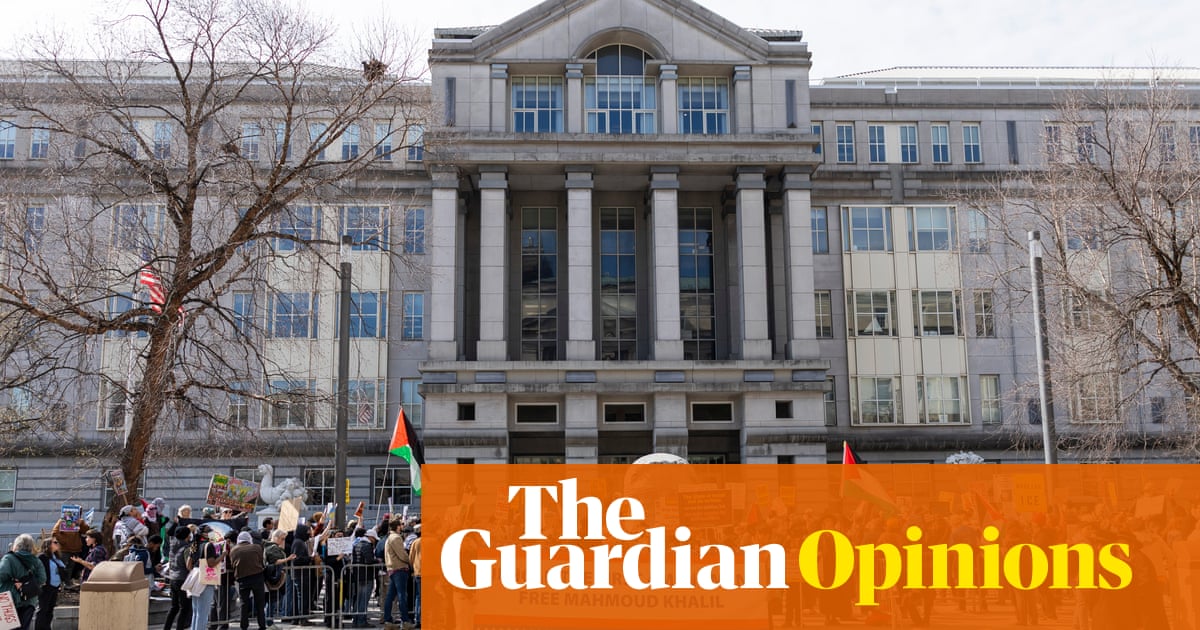After backpacker Rebecca Burke was arrested and locked up for nearly three weeks by US immigration officials in February, she started urging people not to travel to America.
Britons seem to have listened: UK residents visiting the US were down 14.3% in March compared with the same month in 2024, official figures show.
Analysts believe that Donald Trump’s claims that other countries were “cheating” Americans and reports of deportations may have had a chilling effect on travel to the US. But the March dip may be simply an early warning of a bigger fall in the summer, because tourists typically book holidays months in advance.
“Once we get into July, August, September, most of those trips will have been booked,” said David Edwards, founder of the Scattered Clouds travel consultancy.
“But if there is less global trade, there will be less international business travel. Business travel is booked with a much shorter lead time so if there is uncertainty, business travel could take a swifter hit.”
Spring is difficult for travel companies to analyse because Easter moves in the calendar. So could the comparative drop simply be the effect of the Easter school holidays falling in March 2024? It seems unlikely, Edwards said, because the figures from the US National Travel and Tourism Office show an even bigger drop, of 16%, compared with March 2019 when Easter was on 21 April and Trump was nearing the end of his first term.
Travellers from other countries also seemed to avoid the US in March – visitors from western Europe who stayed at least one night in the US were down 17% in March, year on year. German visitors were down 28.2% and Spanish ones down 24.6% compared with 2024. Overall, global travel to the US was down 11.6%. UK residents make up the largest number of foreign visitors to the US, with 3.9 million a year.

TTG, the travel industry magazine, published a poll last week showing that two-thirds of travel agents it contacted believed there had been a downturn in bookings, while only 12% of operators said their business had not been affected.
Demand for hotel rooms in the US may also be reducing. Jan Freitag, national director of hospitality analytics at CoStar, which tracks hotel room occupancy, said that the strong dollar had led to an 8% fall in visitors in 2024.
“So now with the rhetoric that’s going on, I’m super worried that we’re going to continue to see travel numbers below 2019, maybe even decelerating from 2024,” he said. “Saying ‘you’re cheating us, you have a surplus, so we’re going to put a tariff on you’ – that rhetoric is not very welcoming.”
Research by VisitBritain in 2022 showed that international travellers ranked “destination is a welcoming place to visit” as the second most important factor in choosing a holiday.

After publicity around deportations of tourists, including Germans and Australians, the UK and German governments have updated their travel advice to warn citizens of the risk. The incidents may also harm the appeal of the 2026 World Cup – currently due to take place in the US, Canada and Mexico, with the later knockout stages entirely in the US – and the Los Angeles Olympics in 2028, Freitag said.
“Next year will be very big – the World Cup is coming in 2026. So if I’m a German father with two boys and I want to show them the World Cup, am I really going to spend $1,000 a pop on an airfare, plus hotel, plus the ticket, if there’s even a remote chance that I will not be able to make it into the country? I’m not going to take that risk. Not everyone will think that, but probably some people will.”
Clare Collins, co-founder and chief operations officer for CT Business Travel, said that she expected there would be a decline in leisure travel to the US during the summer, but had not yet seen an impact on business travel.
“We’re not seeing any dramatic effects yet for business travel, but that could change in two weeks,” she said. “I think [in] the long-term leisure market, people will choose to spend their money elsewhere.”
If the March dip turns into a major fall in travellers from the UK, some airlines may start cutting routes, Edwards said, and that could have an impact on the British economy.
The UK travel industry recovered from the Covid pandemic mostly because American tourists flocked to Europe, buoyed by a strong dollar that made hotels more affordable in London and Paris.
“Europeans may be thinking ‘I’m not so sure that the US is a welcoming place to visit’,” Edwards said. “Equally, it might be that Americans are thinking ‘how welcome would I be if I go to Europe this year?’”

 German (DE)
German (DE)  English (US)
English (US)  Spanish (ES)
Spanish (ES)  French (FR)
French (FR)  Hindi (IN)
Hindi (IN)  Italian (IT)
Italian (IT)  Russian (RU)
Russian (RU)  4 hours ago
4 hours ago
























Comments